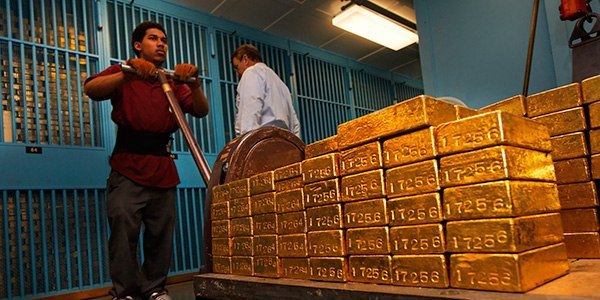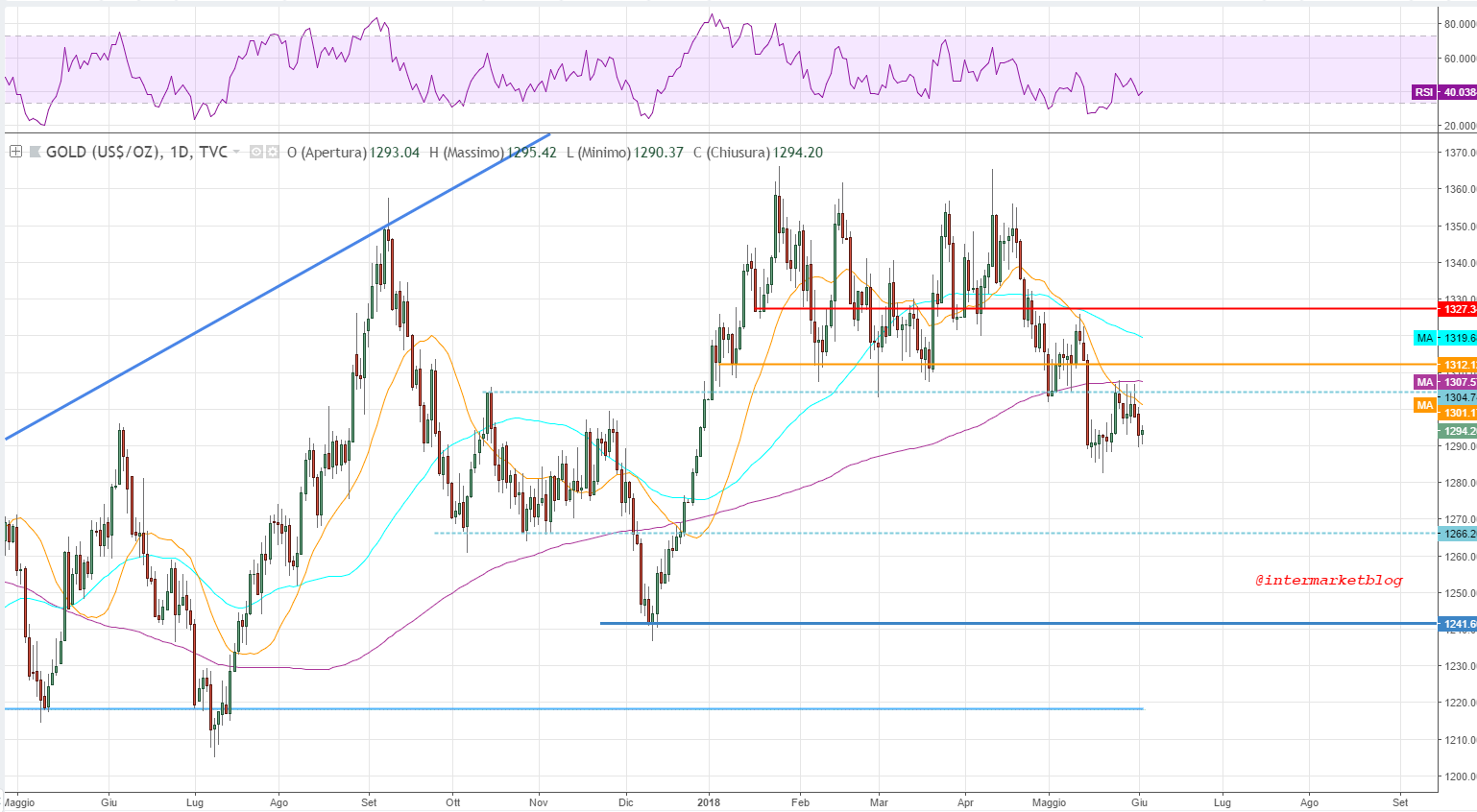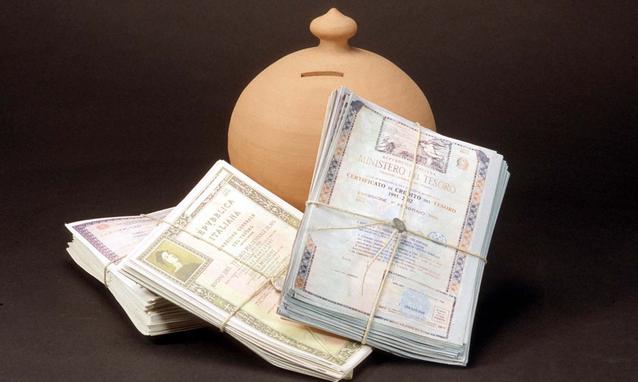Author: Danilo DT Finanza.com Blog Network Posts
Il bene rifugio per antonomasia si muove addirittura in controtendenza di quelle che dovrebbero essere le logiche “safe haven”. Ma solo in apparenza, visto che la differenza per ora la fanno i tassi reali.
Quando si parla di bene rifugio o di “safe haven” tutti pensano subito a quello che per tutti è l’asset reale più tradizionale. Ovviamente sto parlando dell’oro. Ed in queste settimane molti amici lettori continuano a domandarmi COME MAI, vista la difficile situazione politica italiana e la tensione globale, l’oro continua ad essere addirittura in trend discendente.
Premessa: su questo argomento ho già scritto molto in passato, soprattutto di quelli che sono gli elementi che condizionano l’andamento del metallo giallo.
Questo post del 2017 (ORO: un rally che possiamo definire “reale”) e quest’altro di qualche mese fa (ORO e TASSI REALI: ma cosa sta succedendo? ) già hanno illustrato bene cosa è che muove l’oro.
Quindi non posso che confermare quanto già scritto. L’oro oggi è fortemente condizionato dai tassi reali.
Grafico ORO (Gold US/Oz) via Tradingview
E al momento tutte le problematiche (Italia, dazi, Corea, Euroframmentazione, Trump, ecc) sono messe in secondo piano, anche perché in questo momento il vero “bene rifugio” si è dimostrato il dollaro USA. Infatti quest’ultimo si è molto rafforzato e l’oro ha perso circa il 5% in un solo mese.
E già qui si capisce bene anche la correlazione inversa nei confronto del Dollaro USA. Ma non solo, come detto prima, sono i tassi REALI i veri responsabili di questa immobilità che poi diventa negatività dell’oro.
I tassi di interesse depurati dalla componente “inflazione” sono troppo bassi e solo un allargamento dei tassi reali permetterà all’oro di tornare un po’ più protagonista.
Oppure uno scenario decisamente più drammatico, ovvero un RISK OFF assoluto dove tutto quello che è componente di rischio viene venduto in modo aggressivo a causa di una crisi sistemica. Ma questa è un’altra storia che AL MOMENTO non segniamo in agenda.
Tassi reali: la situazione in GERMANIA
STAY TUNED!
(Clicca qui per ulteriori dettagli)
Questo post non è da considerare come un’offerta o una sollecitazione all’acquisto. Informati presso il tuo consulente di fiducia.
NB: Attenzione! Leggi il disclaimer (a scanso di equivoci!)
VN:F [1.9.20_1166]






